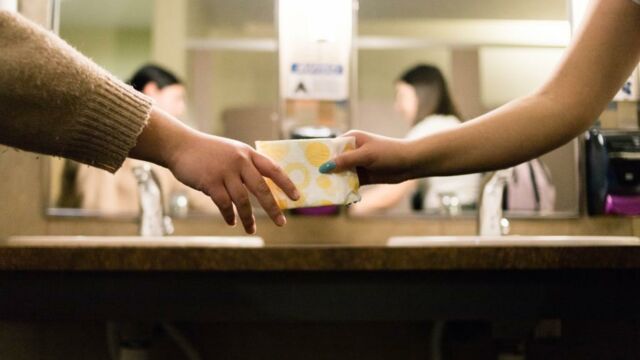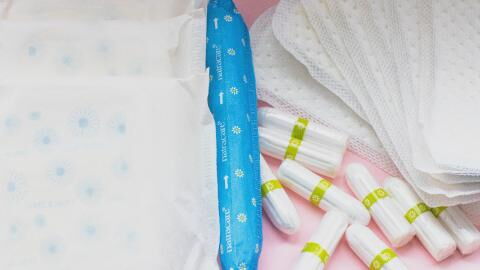Menstrual precariousness is the inability to access basic sanitary products such as pads, tampons, or a menstrual cup. Approximately 500 million women suffer from menstrual precariousness around the world each month. There are many reasons for this: taboo around menstruation, thus lack of information on the subject, but also the weight of centuries-old traditions or extreme poverty.
Discover our latest podcast
What are the consequences of menstrual precariousness?
These women often have to pause their lives when they get their periods. There is no other choice for them but to stay inside, away from their social lives, until their periods are over. In some developing countries, young girls have to stay home and miss out on education when they menstruate, whether because it is considered shameful or because they cannot get access to sanitary products.
Throughout the world, women have been suffering from menstrual precariousness for centuries, but public awareness is very recent and the fight is still not over. Public awareness comes from ending the taboo around menstruation, a work that organizations have been tirelessly doing for decades. Periods have become an actual subject of conversation, and not only something girls talk about between themselves, without naming them (just like Voldemort!).
Read more:Periods: Tips on how to avoid toxic shock syndrome

Scotland, a pioneer country
In 2018, Scotland became the first country in the world to offer sanitary products (pads and tampons) for free, for every pupil or student experiencing periods, which is approximately 395,000 girls. Before this historic decision, one in ten girls had to stay home and miss out on their education when they got their periods, because they couldn’t afford to buy sanitary products such as pads or tampons. The other consequence of this decision was that it helped to fight the taboo surrounding menstruation. The decision has had a positive impact on approximately 71% of girls in the country.
In February 2020, Scotland passed a bill ensuring that sanitary products be free for all women, another historic decision from the pioneer country.
Read more:Turning Red: Pixar's new film about puberty and periods
🩸Women, girls and people who menstruate should never face the indignity of period poverty.
— Monica Lennon MSP (@MonicaLennon7) August 14, 2022
🏴Proud that we are making period dignity for all a reality.
✅Free period products have been widely available in communities ahead of the Act taking full legal effect tomorrow. https://t.co/8Kx3o543cZ
Pad Project, the way to Indian women's independence
In India, a team of women are campaigning to end the taboo around menstruation, which is immense in the country. Only 10% of Indian women use pads, and the vast majority of women who the Pad Project spoke to were very embarrassed when talking about menstruation. The weight of traditions stops them from enjoying a normal life when they are on their periods: for example, they can’t cook because it is thought they will spoil the food, and they can’t go to places of worship.
The machine these women use to produce their own natural pads was funded by the Pad Project, founded by a group of American students from Oakwood through fundraisers, bake sales and yogathons. Not only does it help to end the taboo around menstruation, it also employs women and allows them to earn a living, which leads to their independence from their husband, brother, or father.
Read more: Can our periods really sync up?
Sources used:
Azickia: The fight against menstrual precariousness is moving forward
MEDFeminiswiya: 'Only when taboos are broken will the fight against menstrual precariousness be won'
The Pad Project: Period. End of sentence.
The Guardian: Scotland becomes first nation to provide free period products for all















